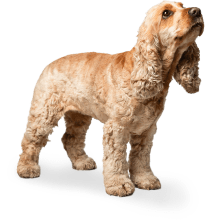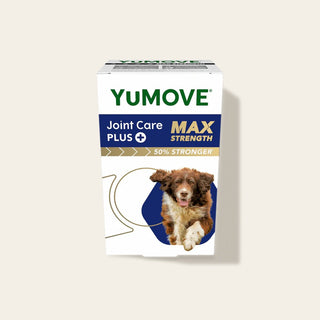

How to tell if you have an overweight dog and what to do about it
Just like with us humans, our dogs’ weight can fluctuate quite significantly – and there are a number of different lifestyle factors that can cause them to become overweight.
Unfortunately, being overweight doesn’t do your dog any favours, either in terms of their mobility or their overall health and wellbeing.
If you suspect your dog may be overweight, the first thing you should do is to contact your vet. They’ll be able to assess your dog appropriately, advise on next steps and come up with breed-appropriate dietary guidelines and a weight loss plan if required.
In the meantime, here’s a closer look at canine weight…

How do you know when your dog is overweight?
Your dog’s ideal weight will depend entirely on their size and breed, and the best way to get an accurate sense of the weight they should be is to take them for a vet checkup as soon as they join the family.
On a day-to-day basis at home, there are a few tell-tale signs that your dog may be overweight.
If they appear pudgy (and you can’t feel their ribs without a thick layer of fat getting in the way), if they’re panting excessively during exercise or they’re napping more, these are all reasons to book a visit to the vet.

How can I help my dog lose weight?
When your vet recommends a weight loss plan for your dog, you can expect this to involve certain lifestyle changes – ranging from advice on what they’re eating and the amount of exercise they’re getting – as opposed to quick-fix diets.

As always, don’t attempt to put your dog on any weight management plan unless it’s been advised by your vet following a consultation.
Regular movement
Regular, moderate exercise is important for all dogs’ physical and mental health, and the lack of it could certainly contribute to weight gain. Different dogs will require different levels of physical activity – especially depending on their individual circumstances – but moderate daily walks should be a staple of most dogs’ routines.
Portioned food
If you give your dog snacks throughout the day, or feed them every time they beg for food, this could end up contributing to weight gain.
Instead, it’s best to stick to your vet’s advice on meal frequency and portion control, and to get your dog accustomed to only eating at their proper mealtimes.
Probiotics for dogs can help to improve your pet's gut health.
Put up a united front against the puppy dog eyes
We know it’s difficult to say no to our adorable furry friends sometimes, especially when treats make them so happy. But as a household, you need to remain strong together and put up a unified front against those puppy dog eyes. If members of the household are regularly slipping your dog a cheeky treat, this could undermine their vet-approved weight management plan and cause their weight to rise.
Keep on top of your check-ups
Regular vet check-ups are essential for safeguarding your dog’s health and well-being and staying on top of fluctuations in their weight. Importantly, regularly checking in with your vet during your dog’s weight-loss journey means you can make the right adjustments at the right time along the way.
For more information on how we can help you keep your dog happy and healthy check out our guides section.




